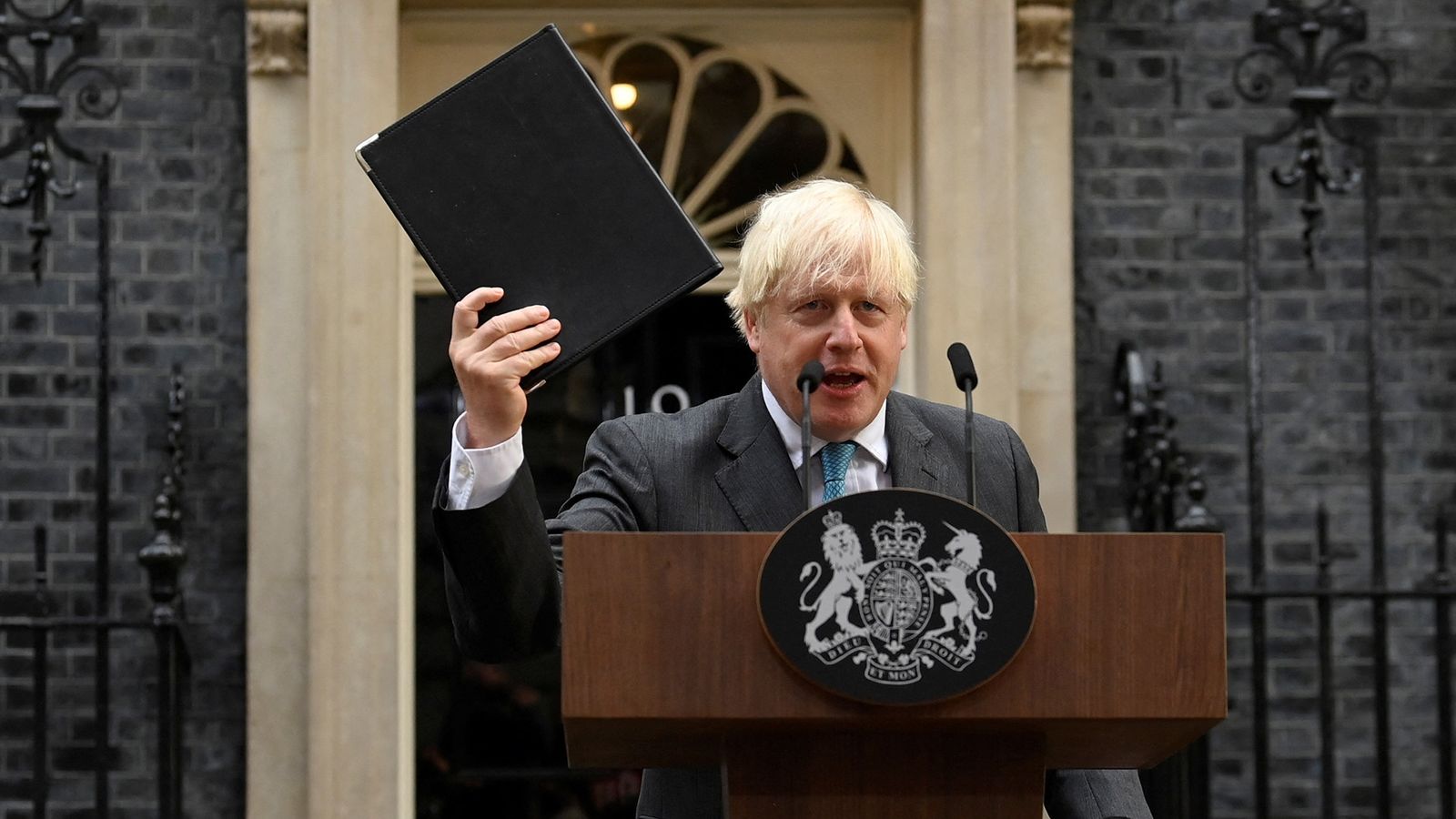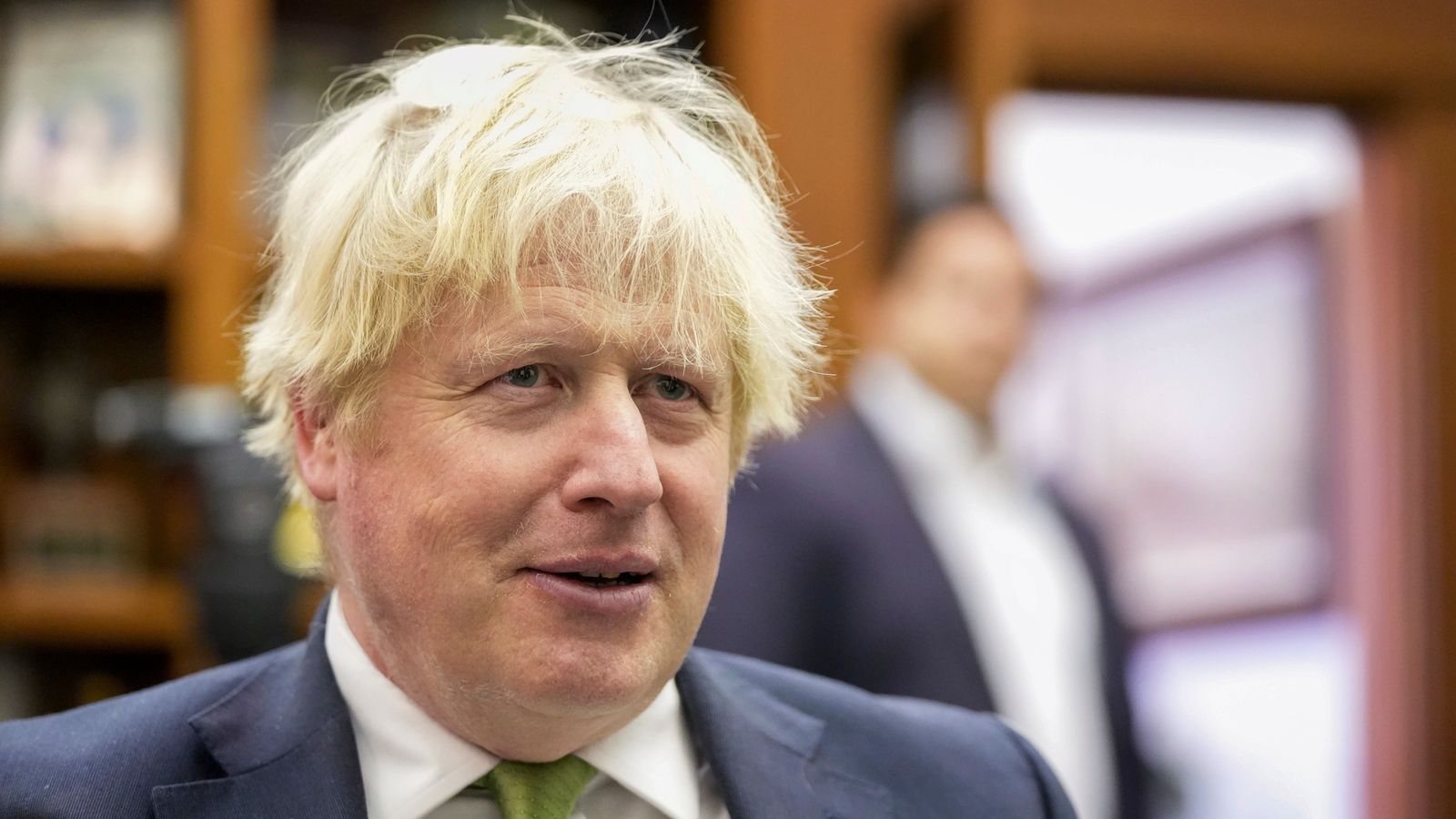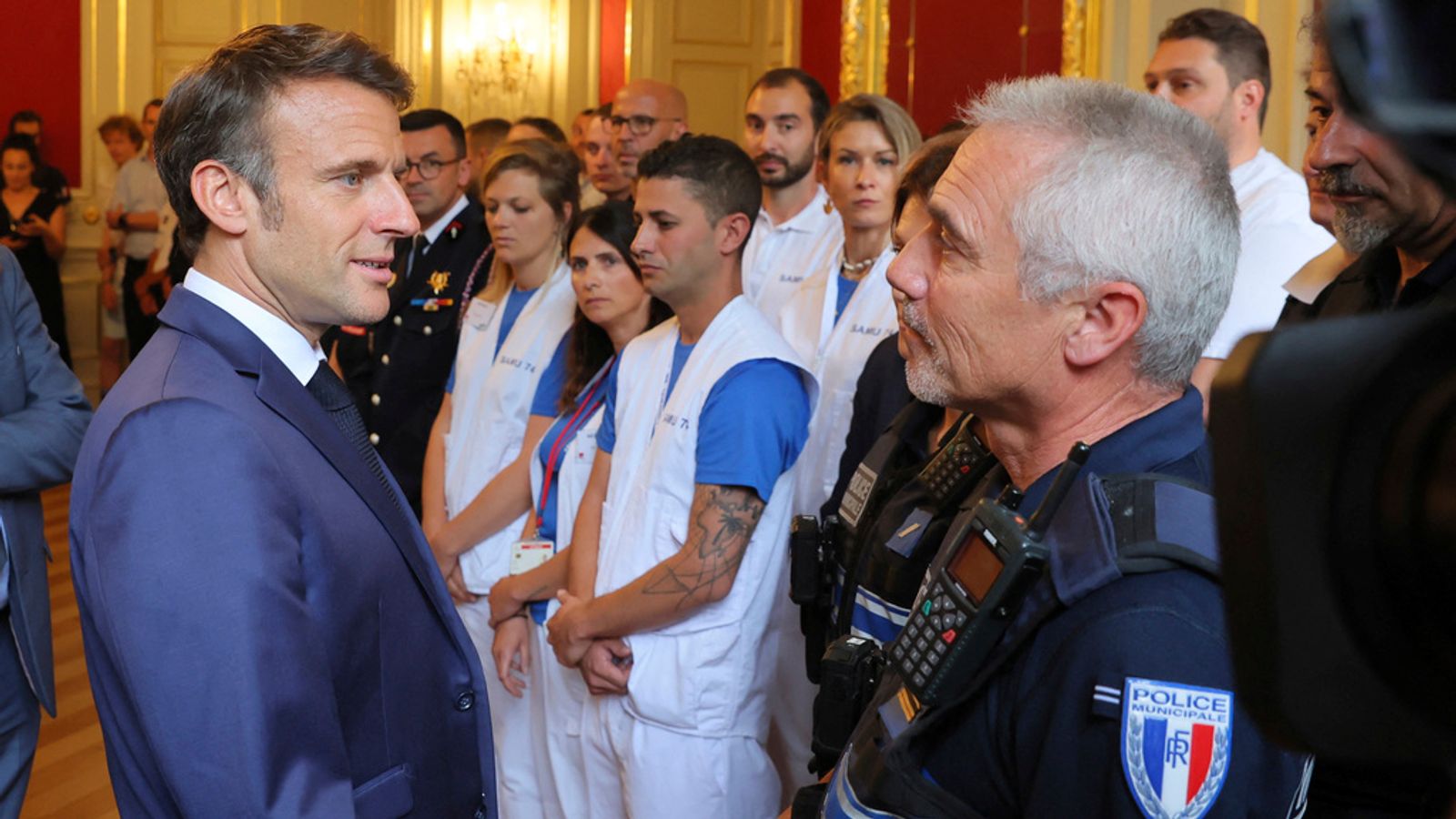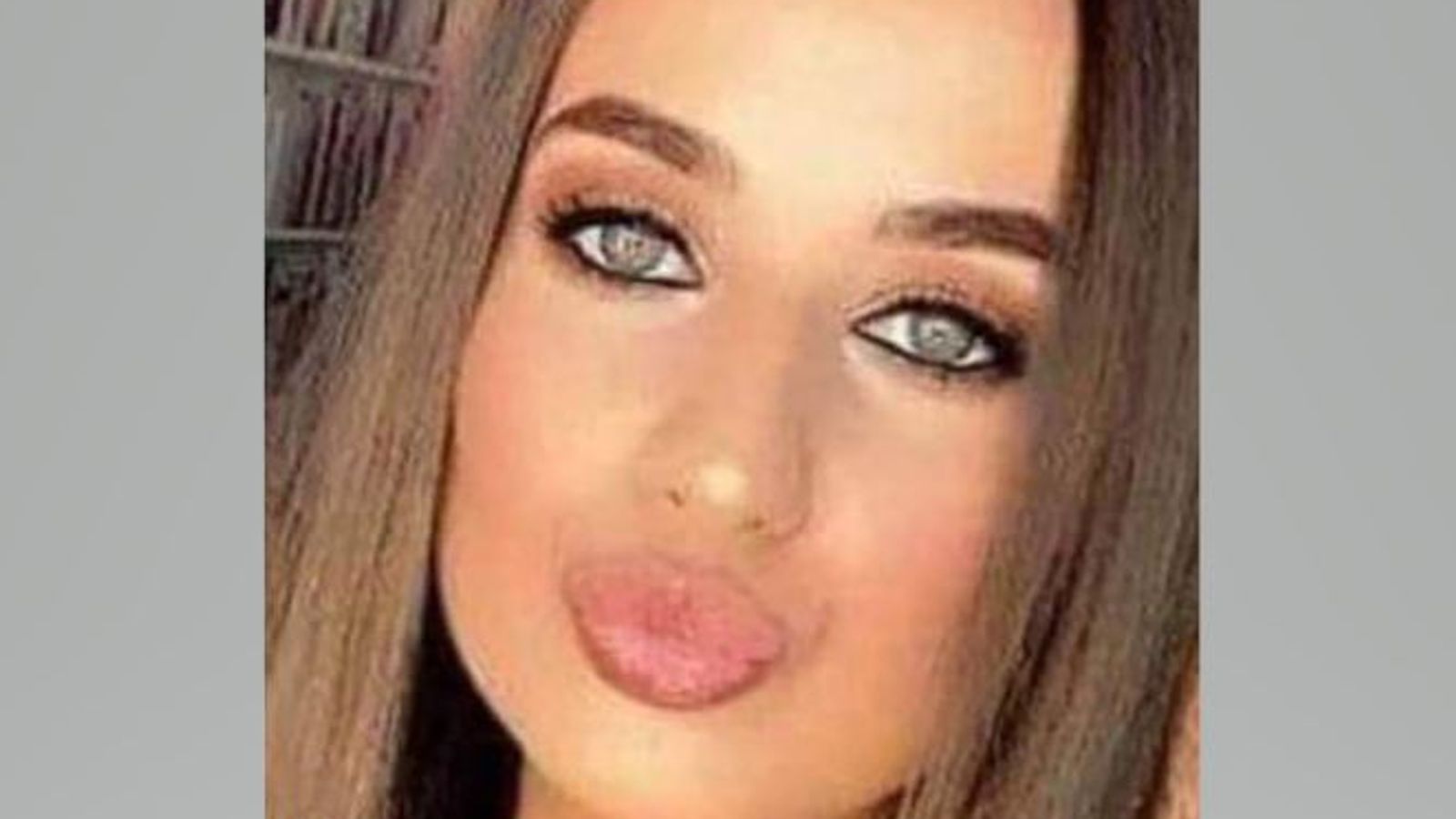Political aides who worked with Boris Johnson during the partygate scandal are among those who have been nominated for honours in his resignation list.
The former prime minister’s highly anticipated resignation honours list has been published and includes Martin Reynolds, his former principal private secretary, who later earned the nickname “party Marty” for his role in a “bring your own booze” party during the pandemic.
Politics Live: Boris Johnson resignation honours list revealed
Mr Reynolds rose to prominence at the heart of the parties scandal when he sent an email on 20 May 2020 inviting people for “socially distanced drinks” in the Number 10 garden during the first national lockdown.
Jack Doyle, who was the director of communications when the scandal broke, is also on the list alongside Guto Harri, who who advised Mr Johnson from February to September last year.
Key political allies of Mr Johnson have also been rewarded, including former cabinet ministers Jacob Rees-Mogg and Priti Patel.
Ms Patel, the former home secretary, has been nominated for a damehood, along with former ministers Andrea Jenkyns and Amanda Milling.
What is the political honours system and how does it work?
Labour tells Rishi Sunak not to accept ‘carousel of cronies’ on Boris Johnson’s honours list
Baroness Hallett: Who is the chair of the COVID inquiry?
Mr Rees-Mogg was given a knighthood alongside former housing secretary Simon Clarke and MPs Conor Burns and Michael Fabricant.
Tees Valley Mayor Benjamin Houchen and London Assembly member Shaun Bailey are among seven nominations for peerages.
However, while there are some controversial appointments, former minister Nadine Dorries and former Cop26 president Sir Alok Sharma were not put forward for the House of Lords.
There had been reports that the pair were in line to receive peerages but the government cut them from the list at the eleventh hour to avoid the prospect of two potentially damaging by-elections.
Ms Dorries stood down with “immediate effect” hours before the list was published – meaning a by-election will go ahead in her constituency anyway.
She said “something significant happened” to influence her decision, but when asked if Mr Sunak had revoked a peerage told TalkTV: “A prime minister doesn’t have the ability to change the list of a former prime minister.”
Another notable absence includes Mr Johnson’s father Stanley Johnson, who The Times reported had been cut after No 10 raised objections.
After the list was published, Mr Sunak’s press secretary sought to distance the prime minister from the list.
They insisted that Mr Sunak had “no involvement or input” into the list, and has published it “unamended”.
However, opposition MPs hit out the list.
Liberal Democrat Deputy Leader Daisy Cooper said: “Boris Johnson has been allowed to hand out gongs to his partygate pals, and Rishi Sunak has just waved it through.
“We’ve gone from the lavender list to the catalogue of cronies. This is corruption pure and simple.”
Angela Rayner MP, Labour’s Deputy Leader and Shadow Chancellor of the Duchy of Lancaster, described the list as a “sickening insult”.
She said: “Instead of tackling the cost-of-living crisis, the Tories are spending their time doling out rewards for those who tried to cover up rule-breaking and toadied to a disgraced former prime minister.
“It’s a sickening insult that those who planned COVID parties and held boozy lockdown bashes while families were unable to mourn loved ones are now set to be handed gongs by Rishi Sunak.
“As Boris Johnson faces yet more allegations and investigations about his conduct, the privilege of an honours list is spectacularly ill-judged and wholly undeserved.”
Mr Johnson announced he would be leaving Downing Street almost 10 months ago following the collapse of his government.
There have been numerous reports since Mr Johnson left office that his list was initially too long, with opposition parties also accusing him of appointing allies to the House of Lords and abusing the system.
The prime minister’s resignation honours are granted by an outgoing prime minister according to tradition.
A prime minister can request the reigning monarch to grant peerages, knighthoods, damehoods or other awards in the British honours system to any number of people.
In the case of peerages, the House of Lords Appointments Commission vets the list.
Often, but not always, Downing Street staff, political aides and MPs are rewarded through the system.









